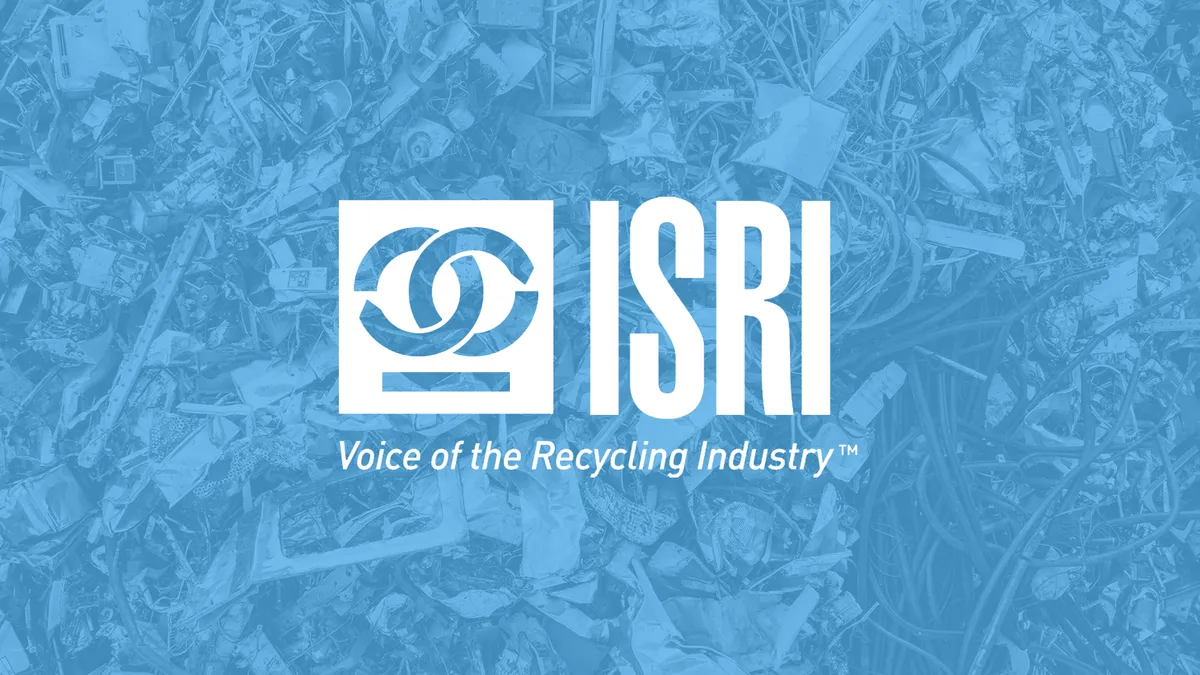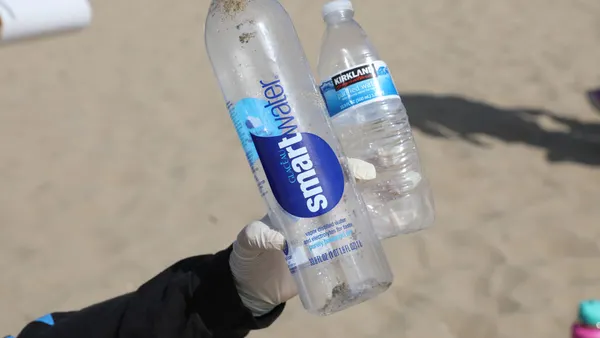Dive Brief:
- The Institute of Scrap Recycling Industries (ISRI) released a document outlining more than two dozen legislative priorities for 2018, divided across six categories: taxes and the economy; international trade; energy and the environment; transportation and infrastructure development; workforce safety initiatives; and regulatory policy.
- ISRI says it supports the development of free trade agreements, the elimination of tariffs on U.S.-based recycled commodities through a World Trade Organization (WTO) agreement, and further implementation of ISRI's Scrap Circular as a global standard. ISRI outlines its support for investment in infrastructure, calling robust national infrastructure important "to efficiently transport raw materials and feedstocks to manufacturers" nationally and internationally.
- ISRI also highlights a number of tax- and regulation-related priorities. The organization seeks to protect a provision in the federal tax code which "provides for 50% accelerated depreciation allowance in the first year of purchase" for qualified equipment. ISRI also seeks to ensure the mutilated coin redemption resumes, the exemption of recyclers from liability under state Superfund programs and the inclusion of language that guarantees recyclable material will not be classified as solid waste in federal or state law.
Dive Insight:
The advocacy agenda includes a litany of other items, including support for the Occupational Safety and Health Administration (OSHA) Alliance cooperative program, which provides safety training and guidance, as well as disseminates information about the rights of workers and responsibilities of employers.
ISRI also lists some more specific policy goals, like completing an EPA-led, timely study on the safety of using recycled crumb rubber in artificial turf. This kind of study, ISRI says, would ease consumer concern over the health implications of a synthetic turf field while giving more market certainty to the industry by providing an end-market for material.
The group also came out in favor of defending the right of recyclers to repair and reuse products, including the rubber, automotive and electronic sectors. ISRI also said it would oppose extended producer responsibility (EPR) models that "disrupt existing viable markets." ISRI says EPR should be limited to products that do not yet have mature markets.
While ISRI maintaining a policy agenda is a regular occurrence, this one comes at an irregular time for the recycling industry. Markets across the U.S. are in various degrees of turmoil as they respond to trade activity from China. Recently, the U.S. and EU both asked China to revise and delay its scrap import restrictions, though it is not likely China will follow through on a complete reversal, especially as President Donald Trump pushes tariffs on steel and other aggressive trade policies.
The industry has some positives going for it too, however. There are plenty of examples of participation increasing in municipal programs, and some big companies, including Waste Management, are turning their attention to domestic mills for their recycled products. Just yesterday, the Closed Loop Foundation announced it was partnering with Connecticut, its first formal partnership with a state, to facilitate $5 million in funding for recycling infrastructure investment in the state.











